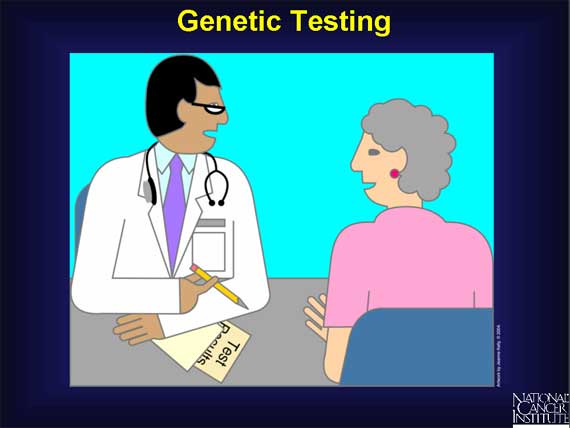|
Laboratory tests can determine whether a person carries some of the genetic alterations that can increase the risk of developing certain cancers. For example, women who inherit certain forms of a gene called BRCA1 or BRCA2 have an elevated risk of developing breast cancer. For women with a family history of breast cancer, taking such a test may relieve uncertainty about their future risk. However, the information obtained from genetic tests is often complex and difficult to interpret. The decision to undergo genetic testing should therefore be a personal, voluntary one and should only be made in conjunction with appropriate genetic counseling.

< Previous | Index | Next Slide > |